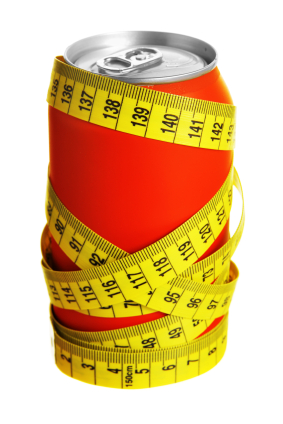Diet Drinks Don’t Fool The Brain

But, a little sugar goes a long way
Diet soft drinks are huge sellers in the U.S. as many consumers use them as a substitute for their calorie-laden sugary bretheren. The good news is that the flavor of these products have improved over time. Of late, Coke Zero ads have focused on humorous “taste infringement” legal action by regular Coke. The bad news: your brain isn’t fooled as easily as your taste buds, and readily distiguishes between sugar substitutes and the real thing. The news isn’t all bad, though. There’s new research that shows that a mere taste of sugar can go a long way.
The researchers had endurance athletes rinse their mouths with either of two carb-containing drinks, the athletes’ exercise performance improved. The same was not true when the athletes were given water flavored with an artificial sweetener.
What’s more, brain scans showed that simply swishing the carbohydrate drinks around the mouth activated particular areas of the brain associated with pleasure and reward. Again, the artificially sweetened water did not have the same effects.
The findings, reported in the Journal of Physiology, suggest that sports drinks may help boost performance via receptors in the mouth that send signals to the brain.
“Our study has shown that during intense exercise lasting around one hour, performance can be improved by simply rinsing a carbohydrate solution in the mouth,” lead researcher Dr. Ed S. Chambers, of the University of Birmingham in the UK, told Reuters Health…
The researchers speculate that the brain activation allowed the athletes to work harder without feeling like they were. [From Sports drinks start working when they hit the mouth by Amy Norton.]
The difference in the way the brain perceives diet drinks has been examined before. In 2008, researchers also performed brain scan research on the topic:
Imaging studies support the idea that sugar and artificial sweeteners affect the brain in different ways. Some parts of the brain become activated when we experience a “food reward.” At the University of California-San Diego, researchers performed functional MRI scans as volunteers took small sips of water sweetened with sugar or sucralose. Sugar activated regions of the brain involved in food rewards, while sucralose didn’t. So it is possible, the authors say, that sucralose “may not fully satisfy a desire for natural caloric sweet ingestion.” [From Harvard School of Public Health – Sugary Drinks or Diet Drinks: What’s the Best Choice?
Jonah Lehrer also has a good description of the research showing that diet drinks don’t activate the brain’s reward centers in Caloric Rewards (Or Why Diet Soda Isn’t Good for Diets).
The Product Opportunity
While the bad news is piling up for those who make diet soft drinks with artificial sweeteners, I think the real opportunity revealed by the latest research is for diet product makers to take advantage of how easily the brain is fooled by a small amount of sugar. While drinking a beverage with carbohydrates provides fuel to sustain athletic exertion, I find it exciting that the mere taste of sugar improved the cyclists’ performance. So, would a tiny amount of sugar in a diet drink allow it to be both thirst-quenching and brain-satisfying? (For years, I’ve been in the habit of putting a shot of real Coke in my Super Big Gulp Diet Coke… maybe my brain was telling me something.)
Other product ideas come to mind. Perhaps the “flavor spray” diet aids which claim to satisfy cravings with a tiny spray of flavor in the mouth actually do work to satisfy the brain, at least temporarily. I think we can expect to see some new products in the coming year that use this and similar research to fool our brains, not just our taste buds, into believing they have consumed more calories than they really have.
